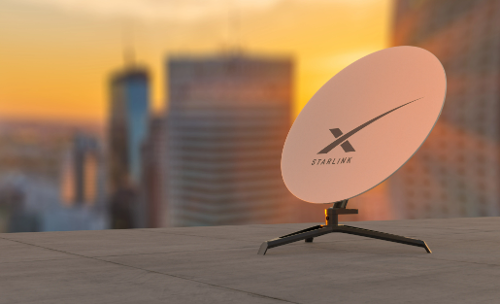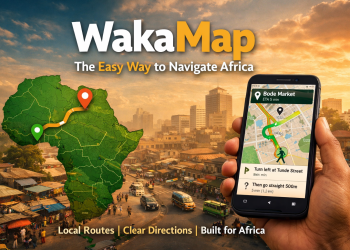Botswana has recently joined the ranks of African nations that have opened their doors to SpaceX’s Starlink unit for operations within their borders.
In response to the potential restriction of services in areas where it lacked a license, the country has granted Starlink the necessary authorization to provide its internet services.
The operating license application of Starlink was rejected by the Botswana Communications and Regulatory Authority (BOCRA) due to missing information, and it took three months for the licensing to be granted. Consequently, the importation, sale, and use of Starlink were promptly prohibited.
This latest turnaround to grant Starlink a license follows a meeting between the SpaceX team and President Mokgweetsi in the US at the Africa-US Business Forum in Dallas, Texas.
READ MORE: Dr Arikana, Enabulele, Others Team Up For Ubuntu Awakening Summit
“After the meeting [with SpaceX], I immediately decided to agree to the licensing of Starlink in the country,” President Masisi said.
President Masisi said that he had given the regulator two weeks to fast-track Starlink’s license application following the meeting.
Botswana has become the most recent country in southern Africa to grant a license to Starlink, following Zimbabwe’s approval of the service last Friday. In a directive from Zimbabwean President Emmerson Mnangagwa, the country’s regulatory body was instructed to expedite the application process.
By licensing Starlink, the country is looking to bridge the connectivity gap in the nation with a population of 2.6 million. Currently, although the country has an internet penetration rate of 87%, it has one of the most expensive data prices in Africa.
Why Botswana Initially Rejected Starlink Satellite Internet Application
Before it got Botswana’s approval, Starlink’s dream of reaching every corner of Earth encountered a roadblock in the country. The low-orbit satellite service, owned by Elon Musk’s SpaceX, was denied its application to operate in the African nation ahead of a planned Q4 2024 launch.
While Starlink submitted its application to launch in May 2023, the regulator found that the company did not share all the necessary information. It is unclear which information Starlink did not provide in its original application.
“There were issues regarding missing requirements with the application, which were identified and pointed out,” said a source at Botswana’s Communication Authority. ”They are yet to respond to the issues.”
To operate in Botswana, applicants like Starlink must pay an application fee of P5,600, an annual license fee of up to P386,000 (~$28,500), and 3% of annual operating revenue.
Starlink In Africa
Starlink is licensed in several other African countries (Benin, Eswatini, Ghana, Kenya, Malawi, Mozambique, Nigeria, Rwanda, Zambia, and Zimbabwe), highlighting the increasing demand for high-connectivity services across the region.
However, not all African countries are readily adopting Starlink’s services. For example, Starlink has yet to secure a license in South Africa because it has not met the Independent Communications Authority of South Africa’s (Icasa) requirement that any applicant must have 30% ownership by historically disadvantaged groups.
However, in an African country like Tunisia, the Tunisian Ministry of Communication Technology partnered with Starlink to conduct a three-month pilot project for installing broadband satellite technology in specific regions.
The trial period will allow Tunisia to assess the feasibility and benefits of implementing this technology in its communications infrastructure. Moreover, this collaboration will contribute to developing a regulatory framework to ensure the effective and responsible use of broadband satellite technology in Tunisia. This is crucial to successfully integrating this technology into the country’s communication systems.
Starlink is currently seeking authorization in several African countries, encountering difficulties related to cost, regulatory compliance, and regional peculiarities.
SpaceX and Starlink
In May 2019, SpaceX successfully deployed its initial batch of 60 Starlink low earth orbit (LEO) satellites.
According to one website that tracks Starlink launches, as of Wednesday, May 15, 2024, there were 6,017 satellites in orbit, with more than 5,200 of those operational.
The firm has licenses to deploy around 12,000 satellites, and it’s been reported that Starlink could eventually increase its mega-constellation to more than 34,000 platforms.
Starlink reached the one million subscriber milestone in December 2022. A year later, it had around 2.3 million users.
Its services have been made available in more than 75 countries worldwide.










